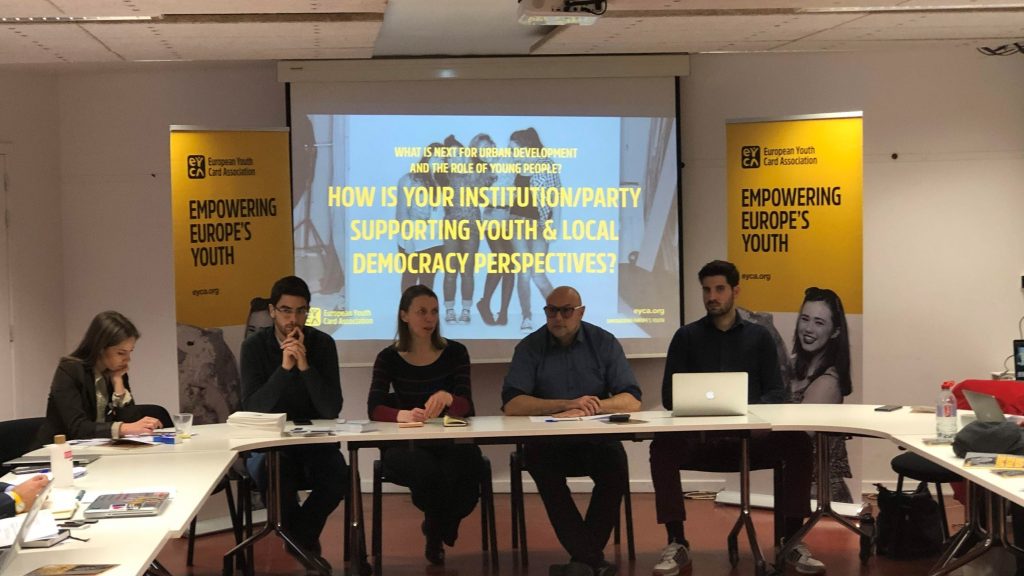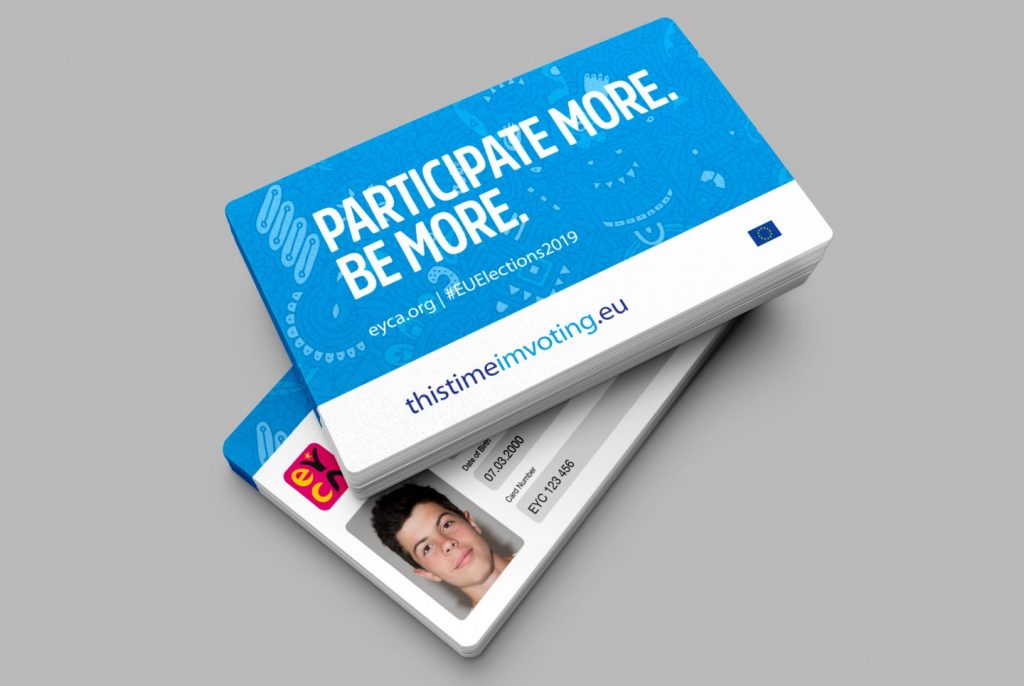I’m changing Europe!


July 2020 marks year 4 of the start of Europe Goes Local. From conception to creation to implementation, the structure of EGL’s DNA has always been relational and its core essence - strong and wholehearted partnerships. What has made EGL unique and set it apart is its diverse members across Europe who feel a strong kinship with each other while sharing the same values and relentlessly working together towards elevating the quality of youth work on municipal, national and regional levels.
Cooperation has always had its own signature in the EGL domain - the kind that unites, supports, transcends and multiplies to build alliances that push the envelope to secure and ensure access to quality opportunities for all young people across Europe to find their own expression of success and live purposeful lives.

In the EGL spirit of ever-expanding the local youth work alliance, today it is our honour to present to you a European organization which also aims at the quality development of local youth work - The European Youth Card Association (EYCA). EYCA is a unique non-governmental, not-for-profit association with over 30 years of rich history and experience, diverse membership and a well-connected network whose purpose is to find novel and creative ways to engage and inspire young people across Europe. EYCA’s mission is to support more young people to be socially, culturally, educationally and economically mobile and active by delivering quality European Youth Card services and by contributing to better youth policies.
Its 40 member organizations issue the European Youth Card to over 7 million young people in 37 countries across Europe and work together to empower young people in ways that allow them to identify and pursue meaningful opportunities that enable them to tap into their potential for growth and success.
Today, we sit together with EYCA Director, Mr Manel Sanchez to learn more about EYCA, identify local opportunities to increase the quality of youth work, hear EYCA’s ideas for collaboration and good practices across European municipalities and why it is important to join forces and support each other in our common pursuit of a higher quality local youth work.
Q: Please tell us a bit more about the Youth Card and what are some ways to use it locally and internationally?
A: The European Youth Card (EYC) is used by over 7 million young people across Europe to access services in different areas: from transportation, accommodation, culture to shopping and building their own lifestyle. By applying the available discounts, young people are able to save up and use their economies to build a more autonomous life.
For those important reasons, many local public authorities are partnering up with EYCA member organisations across Europe, in order to facilitate young people’s access to services, but also to use the European Youth Card communication channels to inform young people and encourage them to participate actively.
A few good examples for municipalities using the EYC infrastructure to communicate with young people include: communicating safety information and updates to young people during the public health crisis in the past few months. Municipalities also took the opportunity to stimulate the local economy and encourage online ordering from local producers as well as offering young people various local youth work opportunities.
The EYC communities are also a go-to for local authorities when they want to directly involve young citizens in participatory budgeting or co-creating local services. Because EYCA members build a relationship with cardholders, in particular through youth work services, but also developing EYC benefits that answer their needs, it is easier for local authorities to communicate information and invite cardholders to use different public services. It´s the difference between having a database and communicating with young people and having access to a community already in place, which trusts the information coming via EYC.
Q: How do you work with Municipalities and why is it important for you and EYCA to work together with them on a local level?
A: The European Youth Card is a tool for public policies and therefore it's important for us to contribute to policies and programmes that impact young people's lives directly and immediately. These are designed and decided at the local level. By connecting cardholders to local decision-makers, EYCA contributes to the empowerment of young people as active citizens who have a voice in their communities. We would like to see the European Youth Card as part of the local economic and social ecosystem in every municipality because that's where young people spend their most of time and where their lives are most impacted.
As we are an organization that promotes mobility, we also believe that young people who travel can benefit from resources, access to services and ultimately knowing the specificity of different municipalities across Europe by using the EYC. That is why one of our core principles is reciprocity, meaning that whoever has a European Youth Card can benefit from the same services as the local cardholders in the municipality where they travel. So it can also be a way for local authorities to promote their touristic attractions to young tourists from all over Europe.
Q: How can municipalities use the Youth Card to boost youth participation in decision-making?
A: Across the EYCA network, there are a variety of examples of how the EYCA infrastructure is supportive of local authorities in advancing youth participation. Most of EYCA member organisations partner up with municipalities to organize local consultations or co-design sessions on different local services for young people, implement participatory budgeting activities, hold elections for local representative structures of young people (e.g. local Youth Councils, local Parliaments, etc) as well as involve young people and give them a leading role in international competitions such as the European Youth Capital or European Cultural Capital.
Recently, EYCA organized a European event specifically dedicated to municipalities and member organisations, supporting them to identify sustainable ways of working together at the local level.
*Dear reader, if you are interested, you can find the comprehensive report and presentations here: https://www.eyca.org/news/5e96d071cdbbf266261d473b
Q: Why is it important for you to create more opportunities for young people to reach their potential?
A: At EYCA, we believe in the power of youth work and the right of every young person to have access to quality youth work services. By partnering with municipalities, EYCA member organization create opportunities for young people to access services that help their personal and professional growth, but also offer municipalities support in designing services that answer the real needs of young people. Young people equitable having access to opportunities leads to more just and sustainable communities, where every young person can grow to reach her/his potential and be an active citizen.
EYC programmes have a strong social component. From using the card as a means to receive social benefits and avoid stigmatization, to having access to discounts which helps young people to save up and become financially independent, EYCA aims to bridge social and economic gaps and to ensure every young person has the means to be their best self.
Q: Currently, in the post-COVID climate, as we are collectively trying to find different ways to return to a version of normalcy, what are some ways the Youth Card could facilitate change or provide an opportunity for young people to continue to develop their potential?
A: Throughout the public health crisis and lockdown, EYCA members offered various and timely responses to young people experiencing different challenges. The EYC digitalized infrastructure proved to be very effective - from providing and supporting cardholders with free legal advice if they lost a job, to deploying online youth work and mental health support services or offering discounts in different cultural and entertaining areas. In fact, it reinforced the partnerships with local authorities as many of them turned to EYC organisations to provide information, updates and keep young citizens safe. A comprehensive list in this regard is to be found on our website: https://www.eyca.org/news/5eb028087b070588ce85e191
At a European level, EYCA Board and EYCA Members are also working closely with the EYCA Youth Panel, formed by a group of cardholders who constantly advise on the services and opportunities that are relevant for young people and how they can be connected to EYC services. Their initiative #IStandFor advances various themes which are guidance on how we can move forward and create services to support young people in a post-COVID climate. In November 2020, we´ll also hold a European event dedicated to policymakers to identify how digital youth work services can be supported by the European Youth Card. EYCA members are developing digital services and now most young people can have their EYC digitally, having access to different services with a tap on their phone.
While EYCA members are ready to mobilise resources and be innovative in their services, we´re also looking at cardholders, hoping they will continue to advise us in what type of programmes are of most benefit for them, thus working together to overcome this crisis.
